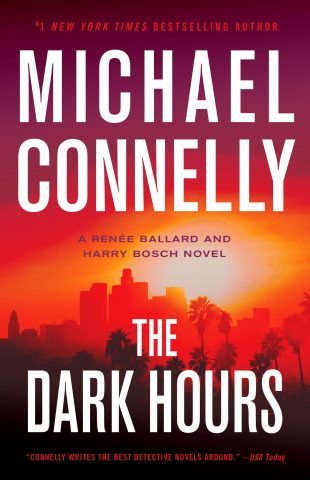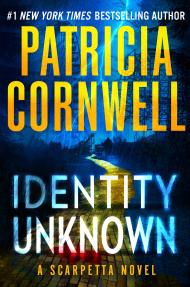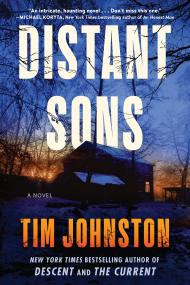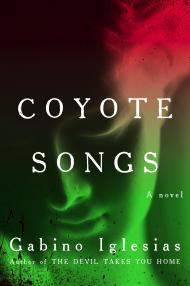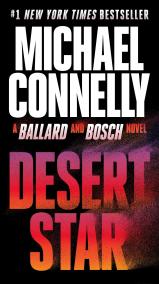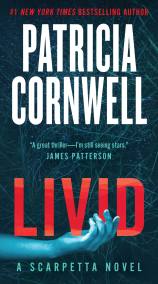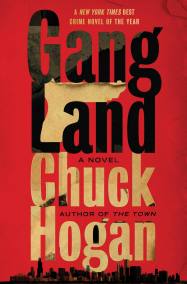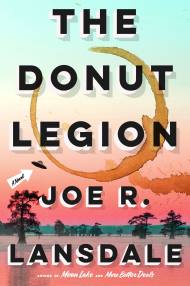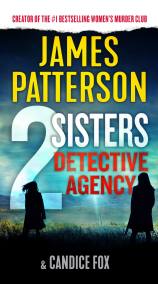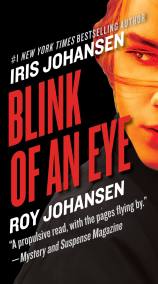Shopping Cart
Description
A Wall Street Journal and South Florida Sun-Sentinel Best Book of the Year
“A masterpiece”—LAPD detective Renée Ballard must join forces with Harry Bosch to find justice in a city scarred by fear and social unrest after a methodical killer strikes on New Year’s Eve (Publishers Weekly).
There’s chaos in Hollywood at the end of the New Year’s Eve countdown. Working her graveyard shift, LAPD detective Renée Ballard waits out the traditional rain of lead as hundreds of revelers shoot their guns into the air. Only minutes after midnight, Ballard is called to a scene where a hardworking auto shop owner has been fatally hit by a bullet in the middle of a crowded street party.
Ballard quickly determines that the deadly bullet could not have fallen from the sky and that it is linked to another unsolved murder—a case at one time worked by Detective Harry Bosch. At the same time, Ballard hunts a fiendish pair of serial rapists, the Midnight Men, who have been terrorizing women and leaving no trace.
Determined to solve both cases, Ballard feels like she is constantly running uphill in a police department indelibly changed by the pandemic and recent social unrest. It is a department so hampered by inertia and low morale that Ballard must go outside to the one detective she can count on: Harry Bosch. But as the two inexorable detectives work together to find out where old and new cases intersect, they must constantly look over their shoulders. The brutal predators they are tracking are ready to kill to keep their secrets hidden.
Unfolding with unstoppable drive and nail-biting intrigue, The Dark Hours shows that “relentless on their own, Ballard’s and Bosch’s combined skills…could be combustible” (Los Angeles Times).
Praise
What's Inside
1
It was supposed to rain for real and that would have put a damper on the annual rain of lead. But the forecast was wrong. The sky was blue-black and clear. And Ballard braced for the onslaught, positioning herself on the north side of the division under the shelter of the Cahuenga overpass. She would have preferred being alone but was riding with a partner, and a reluctant partner at that. Detective Lisa Moore of the Hollywood Division Sexual Assault Unit was a day-shift veteran who just wanted to be home with her girlfriend. But it was always all hands on deck on New Year’s Eve. Tactical alert: everyone in the department in uniform and working twelves. Ballard and Moore had been working since six p.m. and it had been quiet. But it was now about to strike midnight on the last day of the year and the trouble would begin. Added to that, the Midnight Men were out there somewhere. Ballard and her reluctant partner needed to be ready to move quickly when the call came in.
“Do we have to stay here?” Moore asked. “I mean, look at these people. How can they live like this?”
Ballard surveyed the makeshift shelters made of discarded tarps and construction debris that lined both sides of the underpass. She saw a couple of Sterno cook fires and people milling about at their meager encampments. It was so crowded that some shanties were even pressed up against the mobile toilets the city had put on the sidewalks to preserve some semblance of dignity and sanitation in the area. North of the overpass was a residential zone of apartments fronting the hillside area known as the Dell. After multiple reports of people defecating in the streets and yards of the neighborhood, the city came through with the portable toilets. A “humanitarian effort,” it was called.
“You ask that like you think they all want to be living under an overpass,” Ballard said. “Like they have a lot of choices. Where are they going to go? The government gives them toilets. It takes their shit away but not much else.”
“Whatever,” Moore said. “It’s such a blight—every overpass in the fucking city. It’s so third world. People are going to start leaving this place because of this.”
“They already have,” Ballard said. “Anyway, we’re staying here. I’ve spent the last four New Year’s Eves under here and it’s the safest place to be when the shooting starts.”
They were quiet for a few moments after that. Ballard had thought about leaving herself, maybe going back to Hawaii. It wasn’t because of the intractable problem of homelessness that gripped the city. It was everything. The city, the job, the life. It had been a bad year with the pandemic and social unrest and violence. The police department had been vilified, and she along with it. She’d been spat on, figuratively and literally, by the people she thought she stood for. It was a hard lesson, and a sense of futility had set upon her and was deep in the marrow now. She needed some kind of a break. Maybe to go track down her mother in the mountains of Maui and try to reconnect after so many years.
She took one of her hands off the wheel and held her sleeve to her nose. It was her first time back in uniform since the protests. She could make out the smell of tear gas. She had dry-cleaned the uniform twice but the odor was baked in, permanent. It was a good reminder of the year that had been.
The pandemic and protests had changed everything. The department went from being proactive to reactive. And the change had somehow cast Ballard adrift. She had found herself more than once thinking about quitting. That is, until the Midnight Men came along. They had given her purpose.
Moore checked her watch again. Ballard noticed and glanced at the dashboard clock. It was off by an hour, but doing the math told her it was two minutes till midnight.
“Oh, here we go,” Moore said. “Look at this guy.”
She was looking out her window at a man approaching the car. It was below 60 degrees but he wore no shirt and was holding his dirt-caked pants up with his hand. He wore no mask either. Moore had her window cracked but now hit the button and closed and sealed the car.
The homeless man knocked on her window. They could hear him through the glass.
“Hey, officers, I got a problem here.”
They were in Ballard’s unmarked car but she had engaged the flashing grille lights when they parked in the median under the overpass. Plus they were in full uniform.
“Sir, I can’t talk to you without a mask,” Moore said loudly. “Go get a mask.”
“But I been ripped off,” the man said. “That sumbitch o’er there took my shit when I was sleepin’.”
“Sir, I can’t help you until you get a mask,” Moore said.
“I don’t have no fucking mask,” he said.
“Then I’m sorry, sir,” she said. “No mask, no ask.”
The man punched the window, his fist hitting the glass in front of Moore’s face. She jerked back even though it had not been a punch intended to break the glass.
“Sir, step back from the car,” Moore commanded.
“Fuck you,” he said.
“Sir, if I have to get out, you’re going to County,” Moore said. “If you don’t have corona now, you’ll get it there. You want that?”
The man started to walk away.
“Fuck you,” he said again. “Fuck the police.”
“Like I never heard that before,” Moore said.
She checked her watch again and Ballard looked back at the dash clock. It was now the final minute of 2020, and for Moore and most people in the city and the world, the year couldn’t end soon enough.
“Jesus Christ, can we move to another spot?” Moore complained.
“Too late,” Ballard said. “I told you, we’re safe under here.”
“Not from these people,” Moore said.
2
It was like a bag of popcorn cooking in a microwave. A few pops during the final countdown of the year and then the barrage as the frequency of gunfire made it impossible to separate it into individual discharges. A gunshot symphony. For a solid five minutes, there was an unbroken onslaught as revelers of the new year fired their weapons into the sky, following a Los Angeles tradition of decades.
It didn’t matter that what goes up must come down. Every new year in the City of Angels began with risk.
The gunfire of course was joined by legitimate fireworks and firecrackers, creating a sound unique to the city and as reliable through the years as the changing of the calendar. The over/under at roll call was 18 in terms of calls related to the rain of lead. Windshields mostly would be the victims, though the year before, Ballard caught a report of a bullet falling through a skylight and hitting a stripper on the shoulder who was toiling on a stage below. The falling bullet didn’t even break the skin. But a jagged piece of falling skylight glass did give a customer sitting close to the stage a new part in his hair. He chose not to make a police report, because it would reveal that where he was didn’t match where he had said he would be.
Whatever the number was, patrol would handle most of the calls unless a detective was warranted. Ballard and Moore were mostly waiting for one call. The Midnight Men. It was a painful reality that sometimes you needed predators to strike again in hopes of a mistake or a new piece of evidence that could lead to a solve.
The Midnight Men was the unofficial moniker Ballard had bestowed on the tag team rapists who had assaulted two women in a five-week span. Both assaults had occurred on holiday nights—Thanksgiving night and Christmas Eve. The cases were linked by modus operandi and not DNA. The Midnight Men were careful not to leave DNA behind. Each attack started shortly after midnight and lasted as long as four hours while the predators took turns assaulting women in their own beds, ending the torture by cutting a large hank of each victim’s hair off with the knife held to her throat during the ordeal. Other humiliations were included in the attacks and helped link the cases beyond the rarity of a two-man rape team.
Ballard, as the third watch detective, had been the responding detective on both cases. She had then called in day-watch detectives from the Hollywood Division Sexual Assault Unit. Lisa Moore was a member of that three-detective unit.
In past years, a pair of serial rapists would have immediately drawn the attention of the Sex Crimes Unit that worked out of the Police Administration Building downtown as part of the elite Robbery-Homicide Division. But City Hall cutbacks in police funding had seen the unit disbanded, and sex assault cases were now handled by the divisional detective squads. It was an example of how protesters demanding the defunding of the police department had achieved their goal through unintended means. The move to defund was turned away by the city’s politicians, but the police department had burned through its budget in dealing with the protests that followed the death of George Floyd at the hands of police in Minneapolis. After weeks of tactical alert and associated costs, the department was out of money and the result was freezes on hiring, the disbanding of units, and the end of several programs. In effect, the department had been defunded in several key areas.
Lisa Moore was a perfect example of how all of this led to a downgrade in service to the community. Rather than the Midnight Men investigation going to a specialized unit with many resources and detectives with extra training and experience in serial investigations, it had gone to the overworked and understaffed Hollywood Division sex crime team that was responsible for investigating every rape, attempted rape, assault, groping, indecent exposure, and claim of pedophilia in a vast geographic and population-dense area. And Moore was like many in the department since the protest, looking to do as little as possible between now and her retirement four years away. She was looking at the Midnight Men case as a time suck taking her away from her normal eight-to-four existence, where she dutifully filed paperwork the first half of the day and conducted minimal investigative work after that, leaving the station only if there was no way the work could be done by phone and computer. She had greeted her assignment to work the midnight shift with Ballard over the New Year’s holiday as a major insult and inconvenience. Ballard, on the other side of that coin, had seen it as a chance to get closer to taking down two predators who were out there hurting women.
“What do you hear about the vax?” Moore asked.
Ballard shook her head.
“Probably the same as you hear,” she said. “Next month—maybe.”
Now Moore shook her head.
“Assholes,” she said. “We’re first-fucking-responders and should get it with the fire department. Instead we’re with the grocery workers.”
“The fire guys are considered health-care providers,” Ballard said. “We’re not.”
“I know, but it’s the principle of it. Our union is shit.”
“It’s not the union. It’s the governor, the health department, a lot of things.”
“Fuckin’ politicians…”
Ballard let it go. It was a complaint heard often at roll calls and in police cars across the city. Like many in the department, Ballard had already contracted COVID-19. She had been knocked down for three weeks in November and now just hoped she had enough antibodies to see her through to the vaccine’s arrival.
During the brooding silence that followed, a patrol car pulled up next to them on Moore’s side, in one of the two southbound lanes.
“You know these guys?” Moore asked as she reached for the window button.
“Unfortunately,” Ballard said. “Pull your mask up.”
It was a team of P2s named Smallwood and Vitello, who always had too much testosterone running in their blood. They also thought they were “too healthy” to contract the virus and eschewed the department-mandated mask requirement.
Moore lowered the window after pulling her mask up.
“How’s things in the tuna boat?” Smallwood said, a wide smile on his face.
Ballard pulled up her department-issued mask. It was navy blue with LAPD embossed in silver along the jaw line.
“You’re blocking traffic there, Smallwood,” Ballard said.
Moore looked back at Ballard.
“Really?” she whispered. Small wood?”
Ballard nodded.
Vitello hit the switch for the light bar on the patrol car’s roof. Flashing blue lit up the graffiti on the concrete walls above the tents and shanties on both sides of the overpass. Various versions of “Fuck the Police” and “Fuck Trump” had been whitewashed by city crews but the messages came through under the penetrating blue light.
“How’s that?” Vitello asked.
“Hey, there’s a guy over there, wants to report a theft of property,” Ballard responded. “Why don’t you two go take a report?”
“Fuck that,” Smallwood said.
“Sounds like detective work to me,” Vitello added.
The conversation, if it could be called that, was interrupted by the voice of a com center dispatcher coming up on the radio in both cars, asking for any 6-William unit, “6” being the designation for Hollywood, and “William” for detective.
“That’s you, Ballard,” Smallwood said.
Ballard pulled the radio out of its charger in the center console and responded.
“Six-William-twenty-six. Go ahead.”
The dispatcher asked her to respond to a shooting with injury on Gower.
“The Gulch,” Vitello called over. “Need backup down there, ladies?”
Hollywood Division was broken into seven different patrol zones called Basic Car Areas. Smallwood and Vitello were assigned to the area that included the Hollywood Hills, where crime was low and most of the residents they encountered were white. This was a move designed to keep them out of trouble and away from confrontational enforcement with minorities. However, that had not always worked. Ballard had heard about them roughing up teenagers in cars parked illegally on Mulholland Drive, where there were spectacular views of the city at night.
“I think we can handle it,” Ballard called across. “You boys can go back up to Mulholland and watch for kids throwing their condoms out the window. Make it safe up there, guys.”
She dropped the car into drive and hit the gas before either Smallwood or Vitello could manage a comeback.
“Poor guy,” Moore said without sympathy in her voice. “Officer Smallwood.”
“Yeah,” Ballard said. “And he tries to make up for it every night on patrol.”
Moore laughed as they sped south on Cahuenga.
3
The Gower Gulch was the name affixed by Hollywood lore to the intersection of Sunset Boulevard and Gower Street, where almost a hundred years ago it was a pickup spot for day laborers. These laborers waited at the corner for work as extras on the westerns the movie studios were turning out by the week. Many of the Hollywood cowboys waited at the intersection in full costume—dusty boots, chaps, vests, ten-gallon hats—so it became known as the Gower Gulch. It was said that a young actor named Marion Morrison picked up work here. He was better known as John Wayne.
The Gulch was now a shopping plaza with the fading facade of an Old West town and portraits of the Hollywood cowboys—from Wayne to Gene Autry—hanging on the outside wall of the Rite Aid drugstore. Going south from the Gulch, a stretch of studio stages as big as gymnasiums lined the east side all the way down to the crown jewel of Hollywood, Paramount Studios. The storied studio was surrounded by twelve-foot-high walls and iron gates, like a prison. But these barriers were constructed to keep people out, not in.
The west side of Gower was a contradiction. It was lined with a stretch of car repair shops sharing space with aging apartments where burglar bars guarded all windows and doors. The west side was marked heavily by the graffiti of a local gang called Las Palmas 13, but the east-side walls of the studios were left unmarred, as if those with the spray paint knew by some intuition not to mess with the industry that built the city.
The shooting call took Ballard and Moore to a street party in the tow yard of an auto body shop. Several people were milling about in the street, most without masks, most watching officers from two patrol cars who were taping off a crime scene inside the gated and asphalt-paved yard lined with vehicles in different stages of repair and restoration.
“So we have to do this, huh?” Moore said.
“I do,” Ballard said.
She opened the door and got out of the car. She knew her answer would shame Moore into following. Ballard was pretty sure she was going to need Moore to help with this.
Ballard ducked under yellow tape stretched across the entrance to the business and quickly ascertained that the victim of the shooting was not on scene and had been transported. She saw Sergeant Dave Byron and another officer trying to corral a group of potential witnesses in one of the business’s open garages. Two other uniforms were stringing an inner boundary around the actual crime scene, which was marked by a pool of blood and debris left behind by the paramedics. Ballard walked directly to Byron.
“Dave, what do you have for me?” she asked.
Byron looked over his shoulder at her. He was masked but she could tell by his eyes that he was smiling.
“Ballard, I have a shit sandwich for you,” he said.
She signaled him away from the citizens so they could talk privately.
“Folks, you all stay right here,” Byron said, holding his hands up in a stay-put motion to the witnesses, a sign that they might not understand English.
He joined Ballard by the front of the rusting body of an old VW bus. He looked at what he had jotted down in a small notebook.
“Your victim is supposedly Javier Raffa, owner of the business,” he said. “Lives about a block from here.”
He pointed a thumb over his shoulder, indicating the neighborhood west of the body shop.
“For what it’s worth, he has tats indicating an affiliation with Las Palmas,” Byron added. “Old tattoos.”
“Okay,” Ballard said. “Where’d they transport him?”
“Hollywood Pres. He was circling.”
“What did the wits tell you?”
“Not much. Left them for you. Raffa apparently has the gates open and puts out a keg every New Year’s Eve. It’s for the neighborhood but a lot of Las Palmas shows up. After the countdown, there was some shooting of firearms into the sky, and then suddenly Raffa was on the ground. So far, nobody is saying they actually saw him get hit. And you’ve got shell casings all over the place. Good luck with that.”
Ballard shot her chin toward a camera mounted on the roof eave over the corner of the garage.
“What about cameras?” she asked.
“The cameras outside are dummies,” Byron said. “Cameras inside are legit but I have not checked them. I’m told they are not in a position to be of much help.”
“Okay. You get here before the EMTs?”
“I did not. But the basic car did. Finley and Watts. They said it was a head wound. They’re over there and you can go talk to them.”
“Will do.”
Ballard checked to see if either of the uniforms who were marking the boundary was a Spanish speaker. Ballard knew basic Spanish but was not skilled enough to conduct witness interviews. She saw that one of the officers tying the crime scene tape to the sideview mirror of an old pickup was Victor Rodriquez.
“You mind if I keep V-Rod to translate?” she asked.
Ballard thought she saw the lines of a frown form on Byron’s mask.
“How long?” he asked.
“Preliminary with the witnesses and then maybe the family when we go to the house,” Ballard said. “I’ll get somebody from detective services if we transport anybody back to the station.”
“All right, but anything else comes up, I’m going to need to pull him back out.”
“Roger that. I’ll move fast.”
Ballard walked over to Rodriquez, who had been with the division for about a year after transferring from Rampart.
“Victor, you’re with me,” Ballard said.
“I am?” he said.
“Let’s go talk to witnesses.”
“Cool.”
Moore caught up to Ballard in step toward the group of witnesses.
“I thought you were staying in the car,” Ballard said.
“What do you need?” Moore said.
“I could use someone at Hollywood Pres to check on the victim. You want to take the car and head over?”
“Shit.”
“Or you can interview witnesses and family while I go.”
“Give me the keys.”
“I thought so. Keys are still in the car. Let me know what you find out.”
Ballard briefed Rodriquez in a whisper as they approached the witnesses.
“Don’t lead them,” she said. “We just want to know what they saw, what they heard, anything they remember before they saw Mr. Raffa on the ground.”
“Roger that.”
They spent the next forty minutes doing quick interviews with the collected witnesses, none of whom saw the victim get shot. In separate interviews, each described a crowded, chaotic scene in the lot during which most people were looking up at the stroke of midnight as fireworks and bullets cut through the sky. Though no one admitted doing it themselves, they acknowledged that there were those in the neighborhood crowd who had fired guns into the air. None of these witnesses revealed enough to make them important enough to transport to the station for another round of questioning. Ballard copied their addresses and phone numbers into her notebook and told them to expect follow-up contact from homicide investigators.
As she was wrapping up with the last witness, she got a call from Moore, who was at Hollywood Presbyterian Medical Center.
“The victim’s family is all here, and they are about to get the word that he didn’t make it,” she said. “What do you want me to do?”
I want you to act like a trained detective, Ballard thought but didn’t say.
“Keep the family there,” she said instead. “I’m on my way.”
“I’ll try,” Moore said.
“Don’t try, do it,” Ballard said. “I’ll be there in ten. Do you know if they speak English?”
“I’m not sure.”
“Okay, find out and text me. I’ll bring somebody in case.”
“What’s it looking like over there?”
“Too early to tell. If it was an accident, the shooter didn’t stick around. And if it wasn’t, I’ve got no camera and no witnesses.”
Ballard disconnected and walked over to Rodriquez.
“Victor, you need to drive me to Hollywood Pres,” she said.
“Roger that.”
Ballard informed Byron of where she was going and asked him to keep the crime scene secured until she got back.
As she crossed the lot, following Rodriquez to his car, she saw the first drops of rain hitting the asphalt amid the bullet casings.

